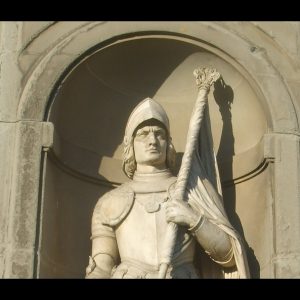Niccolò Machiavelli, the Florentine diplomat, political philosopher and author of The Prince, was born on 3 May 1469. More than five centuries later, his name is still synonymous with ruthless political cunning. However, the truth is far more complex than the word “Machiavellian” suggests.
Born into a noble but not wealthy family in Florence, Machiavelli lived through one of the most turbulent periods in Italian history. The Medici family were ousted in a republican uprising in 1494. Machiavelli entered public life a few years later, serving as a diplomat and senior official in the Florentine Republic.
Over the course of nearly 15 years, he undertook missions to the courts of France, Spain, and the Holy Roman Empire. These journeys gave him firsthand experience of the power struggles that shaped Renaissance Europe.
Il Principe/The Prince
Machiavelli’s most famous work, Il Principe (The Prince), was written in 1513 whilst he was in political exile. After the Medici returned to power, he was dismissed from office, accused of conspiracy, imprisoned and tortured. Though released, he never regained public office; this coloured much of his later writing.
The Prince was addressed to Lorenzo de’ Medici, the new ruler of Florence, in what many scholars believe was a failed attempt by Machiavelli to win favour and regain employment. The short treatise offers blunt advice on how a ruler should maintain power and control. In it, Machiavelli famously suggests it is “better to be feared than loved, if you cannot be both.”
While often viewed as a handbook for tyranny, The Prince was in many ways a realist’s response to Italy’s fractured politics. Machiavelli saw foreign powers like France and Spain interfering in Italian affairs. He believed only a strong leader, even a ruthless one, could stabilise and unify the country.
Playwright, historian and diplomat
Machiavelli’s writings were not limited to autocracy. In his Discourses on Livy, he praised republican government and citizen participation. He was also a playwright and historian, writing comedies such as The Mandrake and analyses of Roman history. His correspondence, rich in observation and humour, adds to the picture of a man who was not a cold schemer, but a passionate and frustrated patriot.
Niccolò Machiavelli died on 21 June 1527, just weeks after the Medici were again expelled from Florence. He did not live to see the republic restored, nor to witness the full impact of his political theories.






